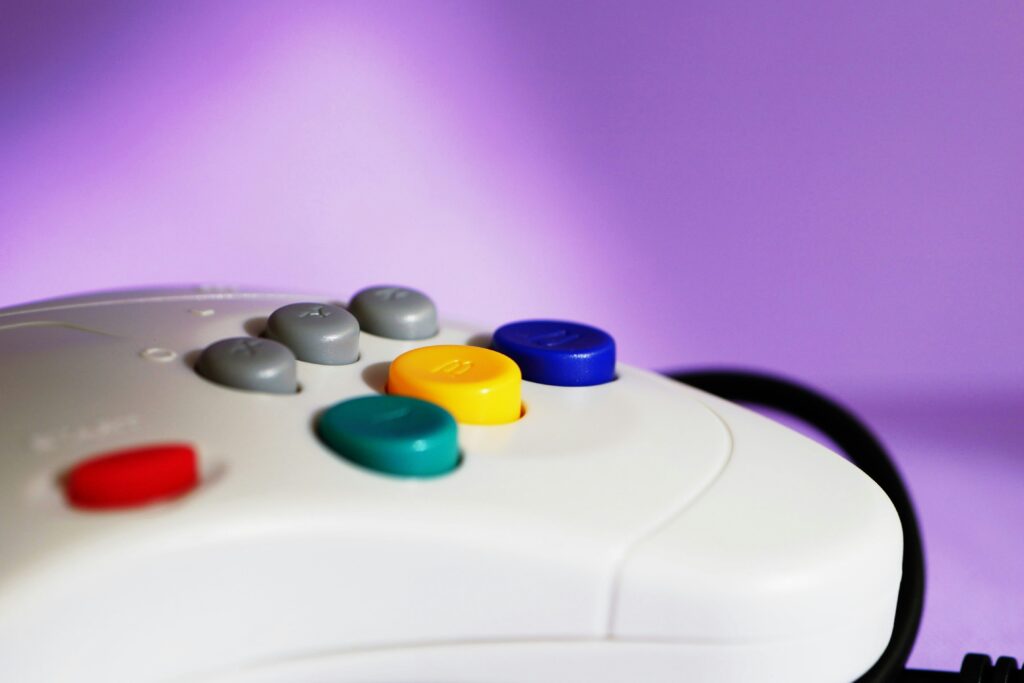Skip the Hype Know What You Actually Want
Choosing your first gaming console isn’t about chasing what’s popular it’s about understanding what fits your lifestyle and play style. Ignore the online wars and start by asking yourself the right questions.
One Size Doesn’t Fit All
The gaming world is huge, layered, and personal. Too often, beginners dive straight into tech specs or trending opinions. Instead, take a beat and reflect on what you actually want from your console experience.
Are you a casual player who just wants to unwind?
Do you prefer competitive gaming with fast reflexes and ranked matches?
Are shared family or social games more your speed?
Don’t let specs or game lineups distract you before defining your preferences. Your goals will shape everything else.
Define Your Gaming Goals
Before comparing resolutions, frame rates, or titles, be honest with yourself:
Time commitment: Are you gaming a few hours a week or diving in daily?
Genre interest: Do you lean toward open world adventures, sports sims, RPGs, platformers, or shooters?
Social vs Solo: Will you be gaming solo, online with friends, or couch co op with family?
Understanding these basics can drastically narrow down your choices and ensure you don’t end up overbuying or worse, buying the wrong fit entirely.
The Main Players on the Field
Let’s cut through the noise. If you’re looking at current gen consoles, you’ve got three serious options: PlayStation 5, Xbox Series X|S, and Nintendo Switch. Each has strengths, trade offs, and a target player in mind. No brand cheering here just the facts.
PlayStation 5
Power: Strong on performance, graphics, and load times.
Exclusives: If you care about cinematic single player experiences think Spider Man 2 or God of War PS5 is stacked.
Downside: It’s bulky and not cheap. Also, inventory still fluctuates in some areas.
Xbox Series X|S
Power: The Series X matches the PS5 in horsepower; the Series S is lower powered but much cheaper.
Ecosystem: Game Pass is the real kicker hundreds of games, including day one drops, for a monthly fee.
Downside: Fewer exclusives that feel must play, though that could change with upcoming acquisitions.
Nintendo Switch
Portability: This is the only mainstream console you can dock to a TV or take on the go.
Exclusives: Games like Zelda, Mario, and Animal Crossing still move hardware for a reason.
Downside: Weak on raw performance don’t expect 4K or high frame rates.
Bottom line: Want cutting edge visuals and hardcore performance? Look at PS5 or Xbox. Want maximum flexibility and Nintendo first experiences? The Switch is unmatched. The right pick depends on your lifestyle and what kinds of games keep you glued to the screen.
Where Budget Meets Reality
Buying a console is rarely just about the price tag on the box. That $399 sticker might get you a shiny device, but it’s just the entry fee. Games especially big titles can run $60 $70 each. Then you’ve got accessories: extra controllers, charging docks, headsets. Most consoles don’t come with everything you’ll need for a solid setup.
Subscriptions are the sneaky long term cost. Services like PlayStation Plus, Xbox Game Pass, or Nintendo Switch Online unlock multiplayer access, cloud saves, and game libraries, but they’re monthly or annual fees that pile up over time.
There’s also a spectrum of models to navigate. Entry level editions usually have less internal storage or performance power, while premium versions offer higher resolution, better frame rates, or just more room for downloading games. If you plan on going digital only, that storage space becomes crucial fast.
Bottom line: the true cost of console gaming adds up. Plan for more than just the upfront expense. Budget smart, or you’ll be making compromises from day one.
Ecosystems and Game Libraries

For first time buyers, don’t let the hardware specs steal the spotlight. What matters more way more is the games. A console’s library will shape your experience, not its teraflops. If you’re into cozy farm sims, party games, or Zelda style adventures, the Nintendo Switch is your home base. If you lean toward cinematic single player titles or big name exclusives like God of War or Spider Man, PlayStation’s got the goods. And if open world chaos, first person shooters, or Xbox Game Pass’s buffet style selection appeal to you, Microsoft might be your match.
Also worth knowing: access to digital stores is key. Each console has its own online shop where you’ll buy, download, and sometimes pre load games. They often run sales, bundle deals, and exclusives you can’t get as a physical disc.
Then there’s the subscription game. Xbox Game Pass, PlayStation Plus, and Nintendo Switch Online all offer different perks free games, cloud saves, multiplayer access, early demos, and more. Subscriptions can save money if you game often, or open doors to trying stuff you’d never buy outright. But factor them into your ongoing costs. It’s not just a one time buy; you’re buying into an entire ecosystem.
Should You Go Used or New?
Buying new is the safest bet. You get a full warranty, direct support from the manufacturer, and peace of mind. If something goes wrong, you’re covered simple as that. But it comes at full price, with little room to negotiate. For first timers who want zero surprises, new is the cleanest route.
The used market, on the other hand, is more wild west. You can score serious deals, especially a few months after a new model launches or during trade in promos. But used consoles can carry problems not visible on the surface overheating, busted drives, or sketchy modding. Always ask for a demo before you buy. Meet in person if possible. Check the serial number against manufacturer support pages to see if it’s been reported stolen or serviced.
Red flags? Super cheap listings with vague descriptions. Sellers who dodge basic questions. Scratch heavy hardware without power cables. Always use trusted marketplaces with buyer protection if you’re not sure.
Bottom line: new gives you a safety net, used stretches your dollar but only if you’re sharp. Choose based on your risk tolerance and tech comfort.
Future Proofing Without Overthinking
When you’re just getting into gaming, it’s easy to fall into the trap of overspending. A top tier console loaded with every feature sounds tempting but most beginners won’t use half of it.
Start simple. Grab the base model or whatever fits your budget. Skip the extra controller unless you need it now. You’ll get way more out of learning what you actually enjoy rather than guessing up front.
The good news? Most consoles are designed to grow with you. Want more storage? You can add that. Interested in streaming or pro level controllers down the road? Easy upgrades. You’re not locked into anything.
As your gaming style shifts maybe you move from casual racing games to competitive shooters your setup can shift, too. Flexibility matters more than future proofing every detail. Get started, play around, figure out what you really care about. The next level will still be there when you’re ready.
Dig deeper with this no nonsense guide:
Still unsure which console is right for you? Don’t overthink it. We’ve broken it all down hardware, games, costs, and trade offs in a guide built for first timers who’d rather play than scroll through endless Reddit threads. If you want clarity without the hype, this is your next move: Choose First Console
The Bottom Line
Make the Decision Based on You Not the Internet
Instead of falling into the trap of flashy reviews, influencer hype, or fan driven debates, take a step back. Your gaming lifestyle should dictate your console choice not online trends.
Ask yourself:
How much time can you realistically dedicate to gaming each week?
Do you care more about high end visuals or unique experiences?
Are local multiplayer or family friendly options a priority?
Your answers matter more than what’s trending.
The “Best Console” Is the One That Fits Your Life
There’s no universal “best” console but there is a best for you. Whether that means a hybrid setup like the Nintendo Switch, a powerhouse like the PS5, or an all in one entertainment hub like the Xbox Series X, the right choice depends on how and where you want to game.
Consider:
Your available space and playstyle habits
Portable vs. home setup preferences
Game libraries that match your interests
Choose a console that makes sense for your everyday life not just your wishlist.
Need More Help to Decide?
Still on the fence? This full breakdown walks you through every step:
Choose First Console


 Hilda Arenas, a key contributor at Your Gaming Colony, has significantly enriched the platform with her extensive knowledge and passion for video games. While not the founder, Hilda plays an integral role in shaping the site's content and community engagement. Her deep understanding of the gaming world and her dedication to quality have made her contributions invaluable to the platform.
Hilda's expertise is evident in the up-to-the-minute gaming news she helps deliver, ensuring that visitors are always informed about the latest industry developments. She is instrumental in producing high-quality, in-depth reviews that offer honest and detailed assessments of new releases, classic games, and everything in between. Her commitment to excellence ensures that the platform's content remains reliable and engaging.
Hilda Arenas, a key contributor at Your Gaming Colony, has significantly enriched the platform with her extensive knowledge and passion for video games. While not the founder, Hilda plays an integral role in shaping the site's content and community engagement. Her deep understanding of the gaming world and her dedication to quality have made her contributions invaluable to the platform.
Hilda's expertise is evident in the up-to-the-minute gaming news she helps deliver, ensuring that visitors are always informed about the latest industry developments. She is instrumental in producing high-quality, in-depth reviews that offer honest and detailed assessments of new releases, classic games, and everything in between. Her commitment to excellence ensures that the platform's content remains reliable and engaging.
